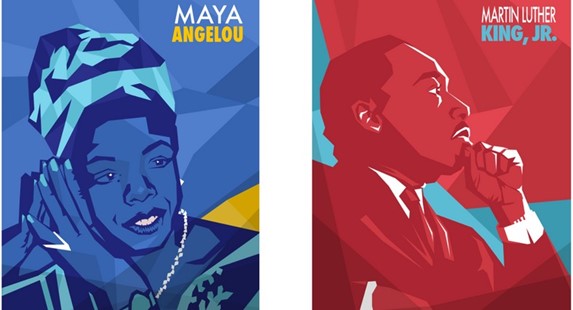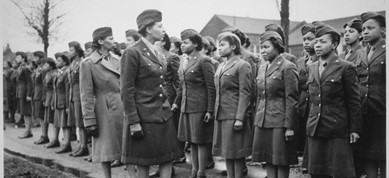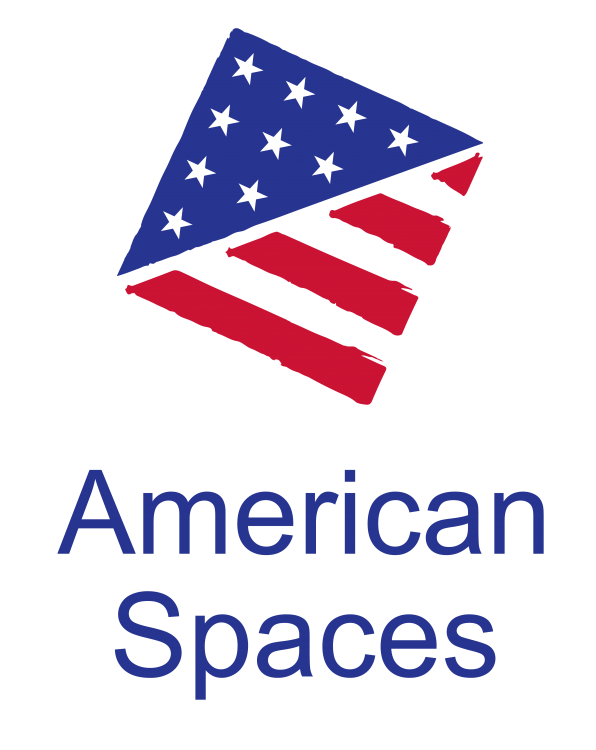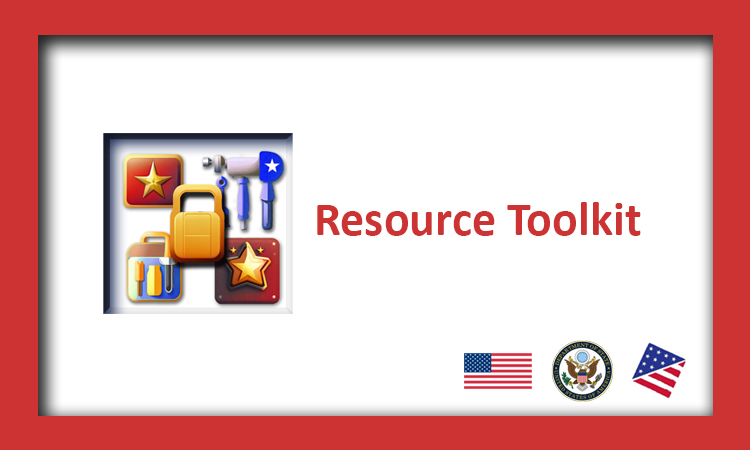BLACK HISTORY MONTH
PROGRAM TOOLKIT FOR AMERICAN SPACES
This program toolkit contains lesson plans, videos, photos, exhibits, articles, and PowerPoint slides to be used at American Spaces to recognize the achievements by African Americans and their role in U.S. history.

LESSON PLANS
Here are ideas for creating programs and engaging individuals on African American history from the National Museum of African American History and Culture.
Additional Programming Resources on the National Museum of African American History & Culture are available on the American Spaces website.
The National Park Service has a number of easy to use and interesting lesson plans on Black History.
WHAT IS BLACK HISTORY MONTH?
Each February, the United States celebrates African- American History Month, also known as Black History Month. This annual observance recognizes the important achievements by African Americans in U.S. history.
In 1926, just 61 years after the abolition of slavery, the Association for Study of Negro Life and History decided to sponsor a national week dedicated to Black history in February, coinciding with the birthdays of Abraham Lincoln and Frederick Douglass.
By the late 1960s the success of the civil rights movement and a growing awareness of black identity led many U.S. colleges to start teaching African-American history, which until then had been largely ignored. Soon, universities and cities began honoring this important aspect of the American Story by celebrating African-American History Month. In 1976 President Gerald Ford officially recognized Black History Month calling upon the public to “seize the opportunity to honor the too-often neglected accomplishments of black Americans in every area of endeavor throughout our history.”
MORE RESOURCES
Museum of African-American History and Culture This site includes digital resources, such as videos, online exhibits.
Washington Post: Smithsonian African American Museum Launches Online Interactive Access
American Spaces Collections (Collections includes a selection of products, including books, games, posters, kits, etc, to be used for programs.)
GPA Photo Archives
Downloadable Posters
African-American History Month Official Site
This site has a tab for educators with a number of resources and lesson plans on specific subjects.
ProQuest Black Freedom – This site contains over 1600 primary source documents on the history of black Americans.
National Museum of African American History & Culture Program Package

KANOPY DOCUMENTARIES
American Spaces can screen Kanopy films at their Space if the films have public performance rights. Visit our screening permission guidelines for more details.
Eyes on the Prize (1990) 14 episodes each around 60 minutes – This expansive documentary tells the story of the civil rights era through archival footage and through the eyes of the participants and opponents of the movement.
Martin Luther King, Jr: I Have A Dream (2004) 23 minutes – This historical compilation features highlights of major speeches given by the Rev. Martin Luther King, Jr.
Emancipation Road (2014) 50 minutes – Looks at the protests, demonstrations, and prominent figures of the Civil Rights movement that ended segregation in the United States.
MOVIES*
Additional movies related to Black History Month topics are available through the MPLC licensing agreement including:
Hidden Figures: 1 hour 29 minutes – Tells the inspirational story of three female African-American mathematicians who were able to overcome adversity and play a critical role for their country with their contributions to the American space flight program.
Race: 2 hours 14 minutes – Tells the story of African-American athlete Jesse Owens and his journey to eventually win four gold medals at the 1936 Olympic Games in Berlin.
Selma: 2 hours 8 minutes – Chronicles Dr. Martin Luther King, Jr.’s campaign to secure equal voting rights with an epic march in 1965 from Selma to Montgomery, Alabama.
MUSIC
Ella Fitzgerald – the tale of a vocal virtuoso – This 19- minute film accessed on Kanopy tells the story Ella Fitzgerald, one of the top jazz vocalists.
Hip Hop and Rap Something from Nothing: The Art of Rap – This Kanopy film traces the rise and influence of hip-hop. It may not be suitable for all audiences.
Hip-Hop: Beyond Beats and Rhymes – This film also available on Kanopy examines the culture behind hip-hop.
MUSIC
Maya Angelou – This PBS lesson plan has videos and an online lesson.

CONTRIBUTIONS TO AMERICAN CULTURE
Since the earliest settlements in America, Black Americans have influenced the nation’s language, culture, religion, literature, music, film, art, cuisine, dance, athletics, and more. They have had significant roles in the fields of science, medicine, education, the judiciary, politics, law enforcement, the military, and the country’s intellectual life. African Americans have played an indispensable role in making the United States the country it is today.
The resources in this toolkit are by no means a comprehensive look at Black Americans’ impact on U.S. society and culture; however, these resources provide examples that American Spaces can use to foster discussions about Black Americans meaningful contributions.
- The History Channel The Harlem Renaissance – The Harlem Renaissance was the development of the Harlem neighborhood in New York City as a black cultural mecca in the early 20th Century and the subsequent social and artistic explosion that resulted. PBS has a related Lesson Plan.
- Ten Black Scientists that Science Teachers Should Know About – PBS educational Resources
- Eight Black Inventors who Made Life Easier for Everyone – History Channel article
- African American Heroism in the Military – Provides broad overviews of Black American contributions
- Fifteen Important Black American Athletes – This article from Black Excellence provides overviews and videos.
- Ida B Wells: A Passion for Justice – This documentary available on Kanopy details the story of this pioneering African American journalist, activist, and suffragist.
*Post will need to procure this film. The Office of American Spaces does not endorse all movies as they may not be appropriate for all audiences. Coordinators should screen the films ahead of showing them. Here’s a link with more information on showing movies at American Spaces.
The views expressed in these links and resources do not necessarily reflect those of the U.S. government.
Updated February 2025









